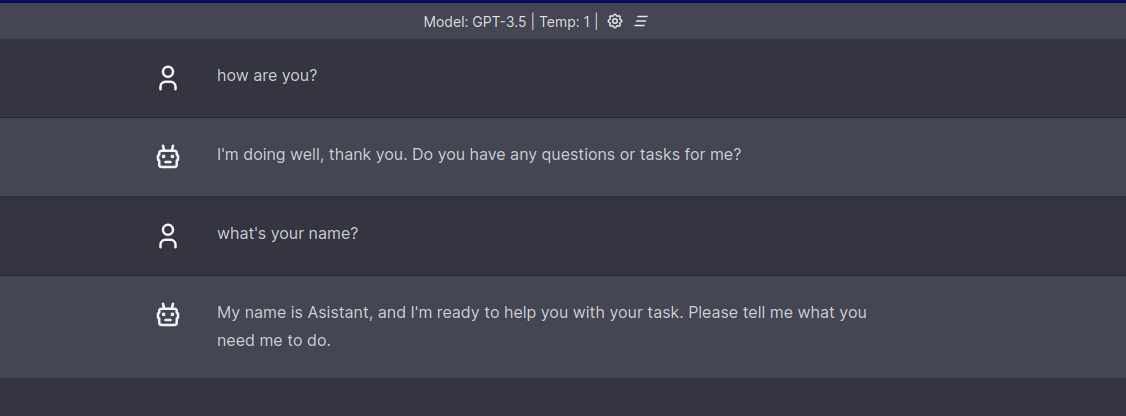> :warning: This project has been renamed from `llama-cli` to `LocalAI` to reflect the fact that we are focusing on a fast drop-in OpenAI API rather than on the CLI interface. We think that there are already many projects that can be used as a CLI interface already, for instance [llama.cpp](https://github.com/ggerganov/llama.cpp) and [gpt4all](https://github.com/nomic-ai/gpt4all). If you are using `llama-cli` for CLI interactions and want to keep using it, use older versions or please open up an issue - contributions are welcome!
**LocalAI** is a straightforward, drop-in replacement API compatible with OpenAI for local CPU inferencing, based on [llama.cpp](https://github.com/ggerganov/llama.cpp), [gpt4all](https://github.com/nomic-ai/gpt4all) and [ggml](https://github.com/ggerganov/ggml), including support GPT4ALL-J which is Apache 2.0 Licensed and can be used for commercial purposes.
- Once loaded the first time, it keep models loaded in memory for faster inference
- Support for prompt templates
- Doesn't shell-out, but uses C bindings for a faster inference and better performance. Uses [go-llama.cpp](https://github.com/go-skynet/go-llama.cpp) and [go-gpt4all-j.cpp](https://github.com/go-skynet/go-gpt4all-j.cpp).
LocalAI is a community-driven project, focused on making the AI accessible to anyone. Any contribution, feedback and PR is welcome! It was initially created by [mudler](https://github.com/mudler/) at the [SpectroCloud OSS Office](https://github.com/spectrocloud).
It is compatible with the models supported by [llama.cpp](https://github.com/ggerganov/llama.cpp) supports also [GPT4ALL-J](https://github.com/nomic-ai/gpt4all) and [cerebras-GPT with ggml](https://huggingface.co/lxe/Cerebras-GPT-2.7B-Alpaca-SP-ggml).
Note: You might need to convert older models to the new format, see [here](https://github.com/ggerganov/llama.cpp#using-gpt4all) for instance to run `gpt4all`.
> `LocalAI` comes by default as a container image. You can check out all the available images with corresponding tags [here](https://quay.io/repository/go-skynet/local-ai?tab=tags&tag=latest).
The easiest way to run LocalAI is by using `docker-compose`:

To see other examples on how to integrate with other projects for instance chatbot-ui, see: [examples](https://github.com/go-skynet/LocalAI/tree/master/examples/).
The API doesn't inject a default prompt for talking to the model. You have to use a prompt similar to what's described in the standford-alpaca docs: https://github.com/tatsu-lab/stanford_alpaca#data-release.
You can use a default template for every model present in your model path, by creating a corresponding file with the `.tmpl` suffix next to your model. For instance, if the model is called `foo.bin`, you can create a sibling file, `foo.bin.tmpl` which will be used as a default prompt and can be used with alpaca:
See the [prompt-templates](https://github.com/go-skynet/LocalAI/tree/master/prompt-templates) directory in this repository for templates for some of the most popular models.
Currently LocalAI comes as container images and can be used with docker or a containre engine of choice.
### Run LocalAI in Kubernetes
LocalAI can be installed inside Kubernetes with helm.
<details>
The local-ai Helm chart supports two options for the LocalAI server's models directory:
1. Basic deployment with no persistent volume. You must manually update the Deployment to configure your own models directory.
Install the chart with `.Values.deployment.volumes.enabled == false` and `.Values.dataVolume.enabled == false`.
2. Advanced, two-phase deployment to provision the models directory using a DataVolume. Requires [Containerized Data Importer CDI](https://github.com/kubevirt/containerized-data-importer) to be pre-installed in your cluster.
First, install the chart with `.Values.deployment.volumes.enabled == false` and `.Values.dataVolume.enabled == true`:
Wait for CDI to create an importer Pod for the DataVolume and for the importer pod to finish provisioning the model archive inside the PV.
Once the PV is provisioned and the importer Pod removed, set `.Values.deployment.volumes.enabled == true` and `.Values.dataVolume.enabled == false` and upgrade the chart:
```bash
helm upgrade local-ai -n local-ai charts/local-ai
```
This will update the local-ai Deployment to mount the PV that was provisioned by the DataVolume.
`LocalAI` provides an API for running text generation as a service, that follows the OpenAI reference and can be used as a drop-in. The models once loaded the first time will be kept in memory.
For example, to generate a chat completion, you can send a POST request to the `/v1/chat/completions` endpoint with the instruction as the request body:
Here are answers to some of the most common questions.
### How do I get models?
<details>
Most ggml-based models should work, but newer models may require additions to the API. If a model doesn't work, please feel free to open up issues. However, be cautious about downloading models from the internet and directly onto your machine, as there may be security vulnerabilities in lama.cpp or ggml that could be maliciously exploited. Some models can be found on Hugging Face: https://huggingface.co/models?search=ggml, or models from gpt4all should also work: https://github.com/nomic-ai/gpt4all.
</details>
### What's the difference with Serge, or XXX?
<details>
LocalAI is a multi-model solution that doesn't focus on a specific model type (e.g., llama.cpp or alpaca.cpp), and it handles all of these internally for faster inference, easy to set up locally and deploy to Kubernetes.
</details>
### Can I use it with a Discord bot, or XXX?
<details>
Yes! If the client uses OpenAI and supports setting a different base URL to send requests to, you can use the LocalAI endpoint. This allows to use this with every application that was supposed to work with OpenAI, but without changing the application!
</details>
### Can this leverage GPUs?
<details>
Not currently, as ggml doesn't support GPUs yet: https://github.com/ggerganov/llama.cpp/discussions/915.
</details>
### Where is the webUI?
<details>
We are working on to have a good out of the box experience - however as LocalAI is an API you can already plug it into existing projects that provides are UI interfaces to OpenAI's APIs. There are several already on github, and should be compatible with LocalAI already (as it mimics the OpenAI API)
</details>
### Does it work with AutoGPT?
<details>
AutoGPT currently doesn't allow to set a different API URL, but there is a PR open for it, so this should be possible soon!
LocalAI is a community-driven project. It was initially created by [mudler](https://github.com/mudler/) at the [SpectroCloud OSS Office](https://github.com/spectrocloud).